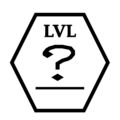WGamification is actually as old of a concept as games themselves or to be more precise play. We humans like most mammals and some other animals use play as part of our growing up process. It is an ingrained behavior that is found in all humans. This behavior is one of our most advanced learning mechanisms that drives us to explore the world and test out new things. Kids all over the world use play to experiment with the world around them and if you remember your childhood you will probably also remember coming up with all kinds of little games and stories by yourself. Gamification is a new buzz word that relates to our age old instinct to come up with stories and rules to contextualize our world around us and engage with our surroundings in creative ways, but this definition is not what most people are thinking about when referring to gamification. Mostly people refer to gamification simply as the act of adding game elements to something that was originally not a game. As the nature of language manipulates and changes definitions there are multiple definitions to gamification. My favorite one and the one that this website mostly builds upon is from Yu-Kai Chou. He is the author of the Gamification Book: Actionable Gamification – Beyond Points, Badges and Leaderboards and inventor of the gamification framework Octalysis; “Gamification is the craft of deriving all the fun and engaging elements found in games and applying them to real-world or productive activities. This process is what I call “Human-Focused Design,” as opposed to “Function-Focused Design.” It’s a design process that optimizes for human motivation in a system, as opposed to pure efficiency.” (Chou, 2019) Chou’s point about “Human-Focused Design” This definition really focuses on seeing gamification as a way to improve the use of tools, rules, technology and much more to compliment our human abilities.

goals – tracking – rewards : sounds like an easy to follow recipe to good results. But a peer group is always helpful! Would you consider that as part of gamifying?
Yes a peer group is something that can really help with motivation and accountability. The most successful games in the world are all played with or against people. The social factor is a huge driving force and really supercharges the effectiveness of gamification. Although it should be noted that some people do prefer to keep things private, so I would not say it is necessary, but rather optional depending on the person. Personally I get highly motivated doing things with and for other people but struggle to do things for myself, therefor connecting to a peer group has been one of the most effective ways to work for me.